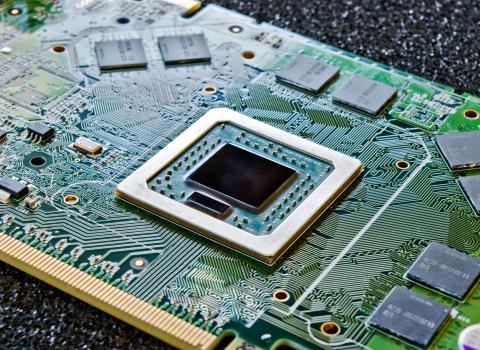
Regional policy commissioner Diana Hübner: SME money mainly earmarked for technology and innovation.
SMEs in the new member states in eastern Europe stand to benefit the most. These countries spend around 5 per cent of their EU cohesion budget in ways that benefit SMEs. In contrast, the Nordic countries, the UK, Austria and others devote between 15 and 25 per cent of their smaller allocation from the cohesion budget to SMEs.
The Commission wants to push the member states in the east to re-focus the money on SMEs by earmarking €27 billion for them.
The lion’s share of this money (65 per cent or €17.5 billion) must be spent on technology and innovation. The rest will be allocated to information and communication technology (ICT) activities (14 per cent), start-ups (12 per cent) and eco-friendly projects (9 per cent), regional policy commissioner Danuta Hübner said.
The aim of the SME budget is to help local governments promote support their small firms by helping them gain access to finance, creating network clusters, assisting diversification and innovation, the Commission said.
The new-styled cohesion policy will act as a “launch pad to boost the Union’s 23 million SMEs, which account for 99 per cent of all EU businesses and two-thirds of all private sector jobs,” it said in a statement.
And the competition commissioner helps too
Less than a week earlier competition commissioner Neelie Kroes unveiled changes to the state aid rules designed to encourage national and regional governments around the Union to invest in their SMEs.
The rules are there to prevent governments giving unfair competitive advantages to their private companies. Under the changes, governments won’t have to notify the Commission’s competition department before granting state aid to SMEs to boost their R&D activity.
Governments will also be able to spend freely on providing risk capital to small firms and start-ups, environmental protection aid, regional development aid and a raft of specific measures designed to improve entrepreneurship, without having to worry about breaking the state aid rules, the Commission said.
Under the new code, an SME can be granted up to €7.5 million in investment aid for a given project , €7.5 million in investment aid for an environmental project, and up to €2 million to take part in trade fairs, the Commission said.
In addition, all companies, large and small, can receive up to €20 million a year to assist in the employment of disabled workers, while assistance to female entrepreneurs can be up to €1 million per company.
Access to risk capital will be made easier for small businesses – including seed capital, start-up capital and expansion capital. Medium-sized businesses will be eligible for seed and start-up capital only, the Commission said.
The cornerstone: Small Business Act
Just one week before the state aid rule change was announced, the Commission unveiled a proposal for a Small Business Act, which will serve as the cornerstone of the EU's SME-oriented policy in initiatives.
One part of the act calls for the changes to state aid rules that were announced last week. Other aspects deal with cutting down on red tape, both at the EU level as well as at national level, and cutting VAT for SMEs.
Unveiling his plans for France’s six-month presidency in a speech to the European Parliament Thursday, president Nicolas Sarkozy said that reaching political agreement on the Small Business Act will be a high priority.





 A unique international forum for public research organisations and companies to connect their external engagement with strategic interests around their R&D system.
A unique international forum for public research organisations and companies to connect their external engagement with strategic interests around their R&D system.